2015 Personal Financial Planning Career Night
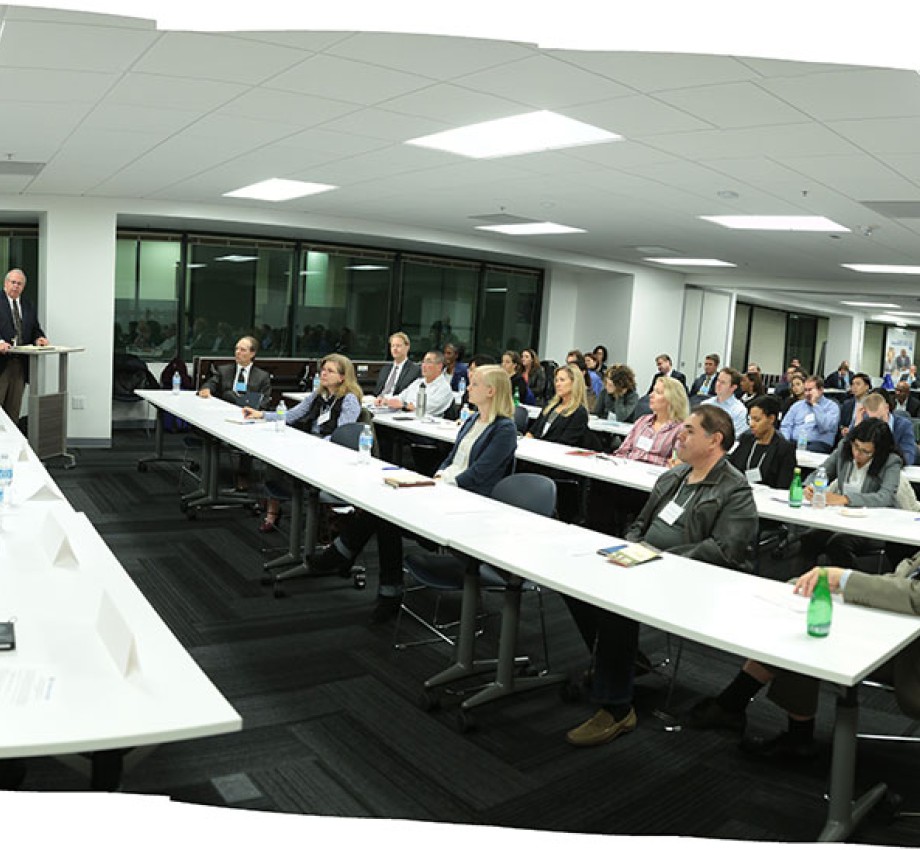
On Dec. 9, 2015, students in the Certificate Program in Personal Financial Planning came to our San Francisco campus to hear top PFP advisers discuss trends in their field.
Students had an opportunity to ask questions and network with members of the Bay Area professional financial planning community. Moderated by Gordon Dunne, managing director at The Financial Services Network, our panel discussed numerous aspects of the field, including mentoring, getting started in the field, and the use of technology and social media to better engage with clients.
The Panelists
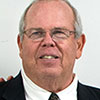

Gordon Dunne, Moderator
Managing Director at The Financial Services Network
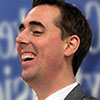
Tom Croxton, AIF
Vice President of Business Development, Transitions and Integrations at The Financial Services Network, a super OSJ/RIA in San Mateo.
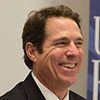
Tim Raftis
A financial adviser at Merrill Lynch Wealth Management's practice and management development program. Previously worked in equity trading.
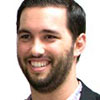
Brian Kozel, CFP
An adviser and client planner at North Berkeley Investment Partners, an independent RIA in Berkeley. Kozel brings the perspective of the successor generation of advisers, as well as that of the smaller independent firm.
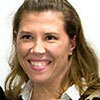
Sabrina Lowell, CFP
An adviser and Chief Operating Officer at Mosaic Financial Partners, an independent RIA in San Francisco with a satellite office in Walnut Creek. The 20-person firm includes 14 women; 11 employees are 45 and younger.
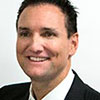
Kurt Carrasquilla, M.B.A.
Vice President and financial adviser at Morgan Stanley and is a longtime UC Berkeley Extension instructor.
What is your connection to UC Berkeley Extension?
Carrasquilla: I took this program in 1995. I have sat in the classes, and now I'm on my 18th year of teaching and on the advisory board.
Lowell: Kurt was my teacher in 2002. I chose the Berkeley program because of the classroom environment with other people that I could connect with. I still have a number of connections with people I went through classes with. We've had a couple of people at our firm who teach in the program, and we've made a number of hires from the program.
I had a great chance to network with a number of people, many of who I'm still in close contact with and some we've hired.
—Brian Kozel
Kozel: I went through the program in 2011. I was fortunate enough to have Kurt as an instructor. When I was in Kurt's investment class, we had to do a project on a particular stock. I chose Green Mountain Coffee Roasters. I'd been waiting since that class to see them get acquired and it finally happened. When I was just getting into the industry and began the program, I was with the same great firm I'm with now, North Berkeley Investment Partners. I had a great chance to network with a number of people, many of who I'm still in close contact with and some we've hired. It's been a great feeding ground for wonderful local talent.
Raftis: I started the program last fall; I was introduced to it by one of my friends who was on the advisory board. The survey course gave a very nice, broad view of the financial planning industry. And that really got me hooked.
Croxton: I just moved here about two years ago, and Gordon brought me to these events to network. I just love talking to people who love financial planning.
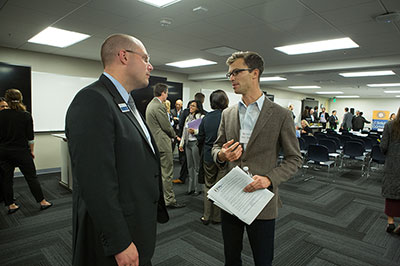
How did you get started?
Raftis: After 23 years as an equity trader, I was in a comfortable position in my career. Then 2008 hit and rattled everybody in our business. We had difficulties with our asset levels and our performance. Also, the equity-training platform became more electronic, and I was missing the interaction that I'd had on the phones with sales. So I looked at financial planning as a way to get back into that relationship mode.
Croxton: I knew I wanted to be in financial services almost from the beginning. My degree is in financial services from San Diego State University. I started at LPL Financial in 2006. I answered phone calls to help advisers operationally: moving money, how to process in ACAD, client portals and things like that. Then I started working with financial advisers to help them grow their fee-based businesses. Help them convert from transactional fees, put them on the same side of the fence as their client, and really be a true fiduciary when managing assets. After the financial crisis, I built a high-net-worth consulting division within LPL Financial with one other person; it's now a division of seven people. Now, I'm at The Financial Services Network and manage a team of three. I sit down with advisers who are looking to move their local business. A lot of them are going independent for the first time, leaving banks and wirehouses. Can you describe your mentorship experiences?
Kozel: I was in an office of 500 people, in a company with more than 30,000 employees worldwide. While evaluating smaller practices that I wanted to join, one of my criteria was, is there at least one person who could be a mentor to me? And was this person going to have the time to coach me through difficult technical questions and the softer skills? How do you close a client that's 35 to 40 years your senior and has $5 million that they're looking to invest? Why would they trust someone like me? I was also looking for mentor relationships that covered different skill sets, which was why I sought out more than one mentor. One of my business partners is a very seasoned adviser and is fantastic on day-to-day relationship management. I have a different mentor for leadership questions.
Lowell: I interned when I was in college and then was hired on after I graduated. And I give that context because I completely agree that seeking out mentors is imperative, but your mentors will probably change over time. When I initially came into the firm, the owner became my mentor. But I also wanted somebody on the outside to be able to advise me on how to have conversations with my employer. I sought out a woman who ran another firm. We get on the phone for an hour each month. I send her an agenda of the topics one week ahead of time so she can prepare. I would encourage people to seek out someone whom you admire and want to emulate, but also consider what you really want from that relationship. I think that's probably what's unique about the planning industry as a whole: wanting to help one another.
Carrasquilla: I think it's incumbent upon you to seek out a mentor. They may tell you some things where you have to strip your ego at the door. Don't get defensive; they're there to help you. Use it as a learning experience. My business partner left his door open and allowed me to listen to all of his conversations. I could hear if the client was anxious, upset, frustrated or happy. For years I listened to these discussions and saw the letters he sent out. There are a lot of people who have been in the business for a while and can share how they communicate with clients. That's important, and it only comes with practice.
Raftis: Take advantage of your instructors. These are folks who sit on the advisory board, they're people who are willing to help you, guide you in your search for the right job. It's right there at your fingertips.
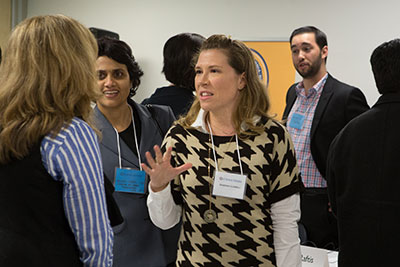
Is there a gender gap in the profession?
Lowell: I think that we are a bit spoiled in the Bay Area. When I go to events around the country, I'm shocked at the dearth of women. But I think this is a natural career for women. Communication skills are imperative in terms of building relationships with clients. Technical expertise is important, but women naturally connect with people.
Kozel: Our firm was founded by two women and that continues to influence the company culture. I think that having a balance of men and women in the industry and within your firm is extremely important because it brings a diversity of perspectives on how to approach problems, how to relate to people and for internal dialogue. Having a diversity of perspectives, but also a diversity of options to match clients with really serves clients better at the end of the day.
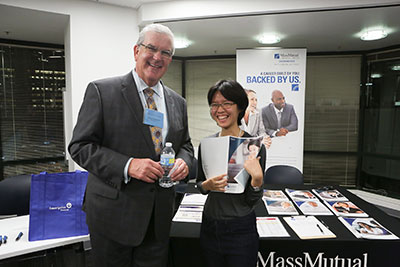
How do you get better at your craft?
Lowell: People know I'm a joiner. When I joined our firm, I'd been asked to speak on internships at the FPA NorCal Conference. I was really excited to go because our firm only sent people who were CFPs and I was just beginning my first curriculum. And I asked [conference organizer] Eric Flett, whom do I talk to get involved in this? I was asked to chair the local chapter of the career development committee, which I've been on for 10 years. It was a wonderful opportunity to work with other financial planners in developing the curriculum. You never know where those opportunities will lead you.
How do social media and technology impact your work?
Croxton: If you're not adopting the technology, the world's going to pass you. We're seeing the rise of the robo-adviser, we're seeing better ways to connect with our clients. Through Skype, phone or video, I can have a meeting with a client who lives in a different state. I am a huge proponent of LinkedIn. You can filter by demographic, by business owners and by the type of people you're looking for. Buy yourself a large television, make sure you're working two monitors, and show clients the top software like eMoney and MoneyGuidePro. eMoney is a phenomenal tool to show your clients the tangible value outside of stock selections. I also recommend Precise MP. Have a Facebook or Twitter feed and push content that doesn't just focus on performance. Our firm pushes video or market commentary to get that touch point out there. FMG Suite produces little interactive videos that you publish once a week. You can subscribe to tools and resources to provide an automated touch, with messages other than "Is my portfolio up or down?" And of course say, "Let me interpret your plan, really show you what that statement means, what that performance memo means, what is the context and your goals and objectives."
Carrasquilla: You really have to understand who your clients are. You may be dealing with people's grandchildren who are from 12 to 25 years old; you may have retired clients. Everyone likes different communication. Some clients prefer email or text. Older clients may want that touch point; maybe they want to be taken to lunch. Maybe the market's fallen 500 or 1,000 points, and you just send a blanket email out, because if you have 500 clients you can't call them all in a 4-hour window. Sometimes picking up the phone and calling them is good.
Lowell: When I started at our firm 13 years ago, we'd put all the information into the software and then go into the data-confirmation meeting with the client. Two pages in and something isn't correct, that meeting is over and you've lost credibility. Now we're using interactive planning software and going through that same scenario on a big screen. If we get to a number, and the client says, "No, that's not correct," you just make that change and your meeting continues. If you're interviewing firms, ask how they are leveraging technology. That could be a value-add for you to help develop or build out their processes.
Technology presents nice charts on an iPad, but it's more about that client interaction and that level of trust that you're trying to get to.
—Tim Raftis
I think it's a challenge for the industry, especially in San Francisco, where the cost of doing business is so high. We're really interested in working with a younger clientele who may not have amassed a lot of wealth yet. So we built out our own online platform, in the form of a financial fitness challenge. The promotion was entirely via social media and our goal was to get 100 new people into the pipeline. We cultivated those people even though they may not have enough assets to work with us on an ongoing basis. XY Planning Network (XYPN) is also a great planning network that can be a resource for working with people on a retainer basis, for those who haven't accumulated that asset base.
Raftis: Going into a client-facing career, you let the prospective client talk. You go into a meeting with somebody and ask questions to open him or her up. It's about building rapport and creating that relationship. Technology presents nice charts on an iPad, but it's more about that client interaction and that level of trust that you're trying to get to.
Kozel: If the market's down significantly, send out a touch to all your clients: "We're taking care of you, we're paying attention to this." Maintain the face-to-face or virtual meetings you have with that client. Be physically present at major life events for them; that can carry a long way. And you don't need to be in contact every day for them to know that you are going to be there when they need you.
Any final words for those who are starting in the field?
Lowell: I started in client services and thought, "I have a four-year degree and I'm going to be filling out account applications?" So I went into the firm owner's office, and said, "I want to be in your chair, what do I need to do to get there?" We talked about going through the CFP curriculum, and in the meantime, I did a rotation of different things throughout the firm, everything from client services to investment trading to developing plans. Now for new employees, whether they are newly graduating or career-changers, we take them through a rotation for each of those different functions and it makes them better advisers. I would suggest trying a little bit of everything.
I find it's much more interesting to get in the weeds with clients and figure out their goals.
—Tom Croxton
Raftis: Having gone to the brokerage side as a financial adviser, I was hesitant to go in that direction because I didn't want to be a stockbroker; I really wanted something with a more holistic approach. And I was surprised at how far the brokerage industry has come in terms of adopting the financial planning model. If you're trying to decide where your strengths and interests are, don't rule out the brokerage side. I think that there are many different areas within brokerage where you can be a part of the team doing planning, relationship management and business development. Don't feel that it's just a sales job.
Croxton: I joke that I haven't had a career change per se, but changes in perception, constantly learning and evolving in the industry. When I got in the industry, I found investment unbelievably interesting. I joke now that investments usually take care of themselves. I'm more interested in the planning process now. That's where you can provide the most value. I find it's much more interesting to get in the weeds with clients and figure out their goals.
Carrasquilla: It's a marathon, not a sprint. Suit up every day, roll up your sleeves, put your best foot forward and gain that trust. If you gain that trust, good things will happen. We've been very fortunate. We had a bad market downturn, but since 2009, markets have had a pretty good run. The planning component is very important: You don't know what your clients' goals or objectives are, what their fears are—those are the things that are very important.
